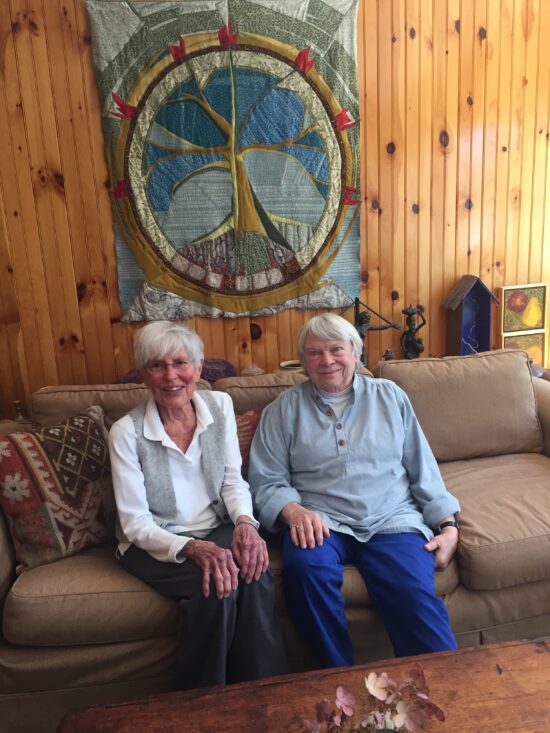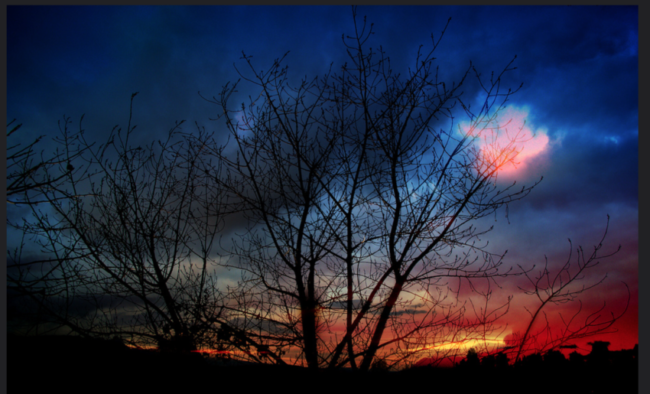The passing down of elder wisdom is an honored tradition among cultures like the Natives Americans and the Japanese where elders are sought out for their sage advice. Unfortunately, this intergenerational exchange rarely happens in America’s youth-obsessed culture, which devalues elders and their lived experiences.
But as more Americans live longer, we are witnessing a new reverence for what the elderly can teach us. A heartwarming example of this development is illustrated in the YouTube video, “Be in Awe,” featuring an interview with a 96-year-old woman. This perceptive, thoughtful, joyful woman remains nameless as she expounds on her life lessons from her modest home and woodsy neighborhood in rural Oregon.
Some of my takeaways from the interview:
As your body slows down, rather than lament this change, see it as an opportunity to be in the moment. Her philosophy for living to 96:
Go slow, or take time to be present. Let go of what you can’t change . . . Don’t let the past haunt you and don’t worry about the future.
After admitting to an unhappy childhood, our subject describes how she has dedicated her later years to “my second childhood.” She is shown splashing in puddles and soaring on a playground swing, expressing her intention “to be a child of wonder and astonishment.”
For her, play involves exploring and being curious, referencing T.S. Eliot: We shall not cease from exploring.
One might wonder how do you keep exploring when your world shrinks? For our narrator it’s seeing each day anew and expressing gratitude for what the day brings, commenting:
Gratitude is the key to finding joy . . . Let gratitude and joy guide your life.
On facing death:
My prayer is to go gently and self-aware of my leaving. . . having lived with gratitude and joy and the satisfaction that I’m done. I’m out of here and it’s OK.
Life is viewed as a mystery:
Don’t try to figure it out. Just be in awe.
I’ve been impacted by wise women I listened to when I was involved with the Greenfire Retreat Center in midcoast Maine. Two elders in particular stand out from that time: Connie and Adelaide, both now deceased.

Adelaide, 85 and Connie, 80, 2016
Among their imparted wisdom, excerpted from a two-part interview with them in 2016:
Adelaide’s reverence for nature in all its mutations, encouraged her to see beauty in her changing older body:
I now find the imperfect, like clumps of weeds, more acceptable. My body may be ugly in some ways, but I have never loved it more.
Connie also found meaning in her aging. Rather than lament her failing memory, she regarded it as a gift:
My form of energy is always wondering, expanding my awareness of everything. I’m also aware of what’s lost—not just friends and loved ones but my memory. I have trouble with names. I see this as a gift it that it becomes an introduction to mystery rather than knowing.
When prompted, Connie expanded on how she experienced mystery:
When you’re old all that’s left is mystery. The world is bigger. Boundaries disappear. Mystery is present when language and images fall away. Then one moves from looking at a particular thing to its essence. It’s hard to define because in a sense it’s nothing. Or nothing is in the way of looking.
Both women lived alone, finding their solo life an enhancement. Adelaide elaborated:
For me, I can’t get as deeply quiet if I’m living with someone.
Connie’s poem on aging is a tribute to elder wisdom:
Now I am old. 
Now I have no use for the habit of protection.
I feel most of all what has been feared and refused.
From my heart’s isolated chambers there flows ache and gratitude.
Together they melt into a strange love.
Love even everywhere
And right now
in this moment.



